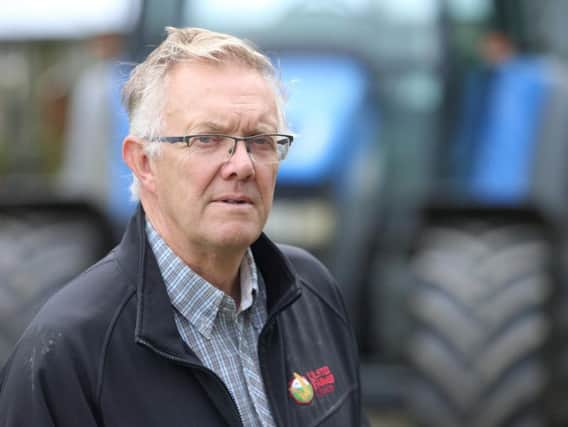UFU says no-deal tariff policy must change


The comments were made following the Chancellor of the Duchy of Lancaster, Michael Gove’s, appearance at the House of Commons Brexit Select Committee earlier in the month. Where he told the committee, he plans to re-publish temporary no-deal tariffs with some changes before October 14.
UFU president, Ivor Ferguson said: “The number one priority across all commodities should be immediate reciprocal tariffs in the event of a no-deal. Any new proposed UK tariff structure should mirror the existing EU tariff levels in order to protect producers from global costs of production. Ongoing trade would then be managed through the introduction of tariff-rate quotas (TRQs) to offset the higher tariff levels, which are necessary, and will protect both producers and consumers. Anything less will have a major impact on Northern Ireland’s farming sector.”
Advertisement
Advertisement
The UFU has repeatedly made the case for reciprocal tariffs.


“The government’s current no-deal tariff policy is problematic. The proposed zero per cent tariff on agricultural goods coming from ROI into NI, combined with the differential treatment between ROI and GB, where tariffs will apply, will be disastrous for farmer and growers in NI.
“It will drive down farm gate prices as cheaper products flood the market from across the globe, much of which is produced at a lower cost and to a lower standard. Effectively making us uncompetitive and forcing us out of the market. It also opens the door to illegal trade, which ultimately, puts the reputation of the entire UK’s agri-food industry on the line.
“Now is the time to agree tariffs that will safe-guard food production in the UK. Farmers are the bedrock of the agriculture industry and everything must be done to ensure the future viability of Northern Ireland’s family run farm businesses,” said Mr Ferguson.
The UFU continues to lobby politicians at Westminster on this issue.